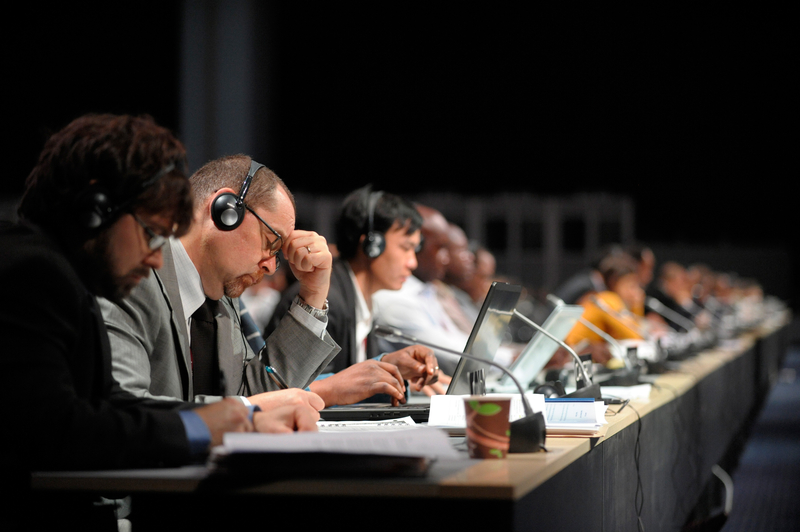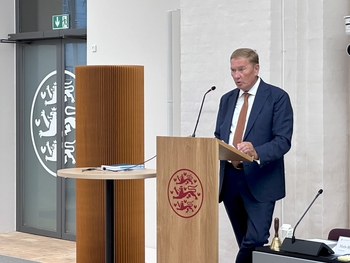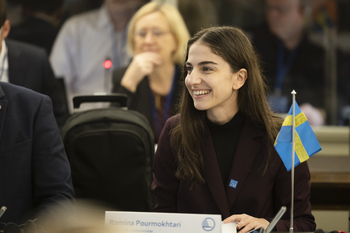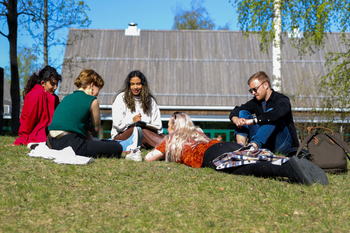Enhancing ambition and accountability under a Paris climate agreement

World leaders are working towards a major new agreement under the United Nations Framework Convention on Climate Change (UNFCCC), to be concluded at the UN Climate Change Conference in Paris this December (COP21).
Ensuring commitment and ambition
The agreement is built on pledges by each of the Parties, known as Intended Nationally Determined Contributions (INDCs). Switzerland and the EU submitted their INDCs last month, and other developed countries are expected to follow soon, though some countries may not submit INDCs until after Paris.
But how will the Parties and observers know if collectively the contributions are enough to keep the world from warming by more than 2°C above pre-industrial levels? How will they know which countries are making substantial efforts, and which are lagging behind? And how will the Parties be held accountable for meeting their commitments, and be nudged to keep raising their ambition?
- Trust is key to ambition
The Nordic Working Group for Global Climate Negotiations (NOAK) new report examines the options for assessment and review (A&R) of contributions under a Paris agreement, drawing on lessons from existing processes within and outside the UNFCCC. It suggests that some form of ex ante assessment and review of INDCs could help ensure that they are ambitious and fair. Such process can be complemented by assessments by observer organizations and informal discussions among Parties. In addition, a periodic review of collective ambition is desirable from the perspective of environmental effectiveness, and can build on existing review processes.
Peer Stiansen, NOAK Chair, added: “Trust is key to ambition. A good process for assessment and review of INDCs will help in building trust among Parties. This is vital both towards Paris and beyond. I trust that this report, together with several other NOAK sponsored reports on related topics, will assist the negotiators and others well in the challenging tasks ahead.”
The report, Assessment and Review under a 2015 Climate Change Agreement, was prepared for NOAK by the Stockholm Environment Institute (SEI), the Center for International Climate and Environmental Research – Oslo (CICERO) and the German Development Institute (DIE).
Findings discussed in Stockholm
It is being released Wednesday, 25 March, at a seminar at SEI in Stockholm that will include a discussion with the authors and Elin Kronqvist, of the Swedish Ministry of the Environment and Energy; Dr Hanna-Liisa Kangas, of the Finnish Environment Institute; and Petter Lydén, of Diakonia.
The report examines key choices and trade-offs that policy-makers will have to make in designing the A&R process, such as what to cover (only mitigation pledges or the full scope of the INDCs); whether to differentiate among Parties, and if so, how; and what roles non-governmental actors should play.
“Not all of these issues can be resolved in time for Paris, and the details for A&R can be agreed in the coming years”, said Harro van Asselt, a research fellow and the report’s lead author. “Still, some key actions will be needed in Paris, such as a basic decision establishing an A&R process, both for ex ante reviews of contributions and for their implementation, is needed in Paris.”
The report is available on the website of the Nordic Council of Ministers. A policy brief summarizing the findings is also available here.
The Nordic Working Group for Global Climate Negotiations (NOAK) is a working group under the Nordic Council of Ministers.




